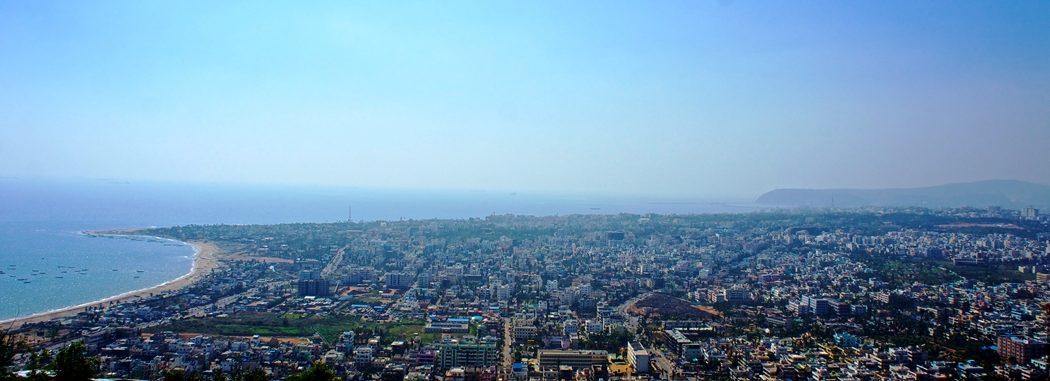A proposal by the southern Indian state of Andhra Pradesh to have three capitals rather than one could be a model for more equal development and help release pressure from the country’s overcrowded cities, say planning experts.
Last month, the government of Andhra Pradesh passed the Decentralisation and Equal Development of All Regions Bill to pave the way for three cities to be the executive, judicial and legislative centers, rather than build a new capital city.
Having three capitals is an anomaly in India, where state capitals have long been centers of power, drawing the bulk of investment and infrastructure building, and becoming magnets for thousands of migrants from the villages every day seeking jobs.
But with increasingly crowded cities and lopsided economic growth in many states, decentralization is desperately needed, said Bhanu Joshi, a former member of a committee that studied the feasibility of the multi-capital plan.
“Indian states focus on putting all their capital into just one big city instead of giving a boost to decentralised development, where more cities are adequately empowered and sustained to allow for balanced development,” he said.
“Andhra Pradesh is endowed with different types of natural resources – a policy of balanced regional development is the only way forward,” Joshi, a political scientist, told the Thomson Reuters Foundation.
Andhra Pradesh was split in two in 2014 after a decades-long movement for a separate state, with Telangana hived off the northwestern part in June 2014.
Andhra Pradesh’s capital, Hyderabad, became the capital of Telangana, but will also remain capital of Andhra Pradesh for a period of up to 10 years, so the state can establish its own capital.
Andhra Pradesh’s former chief minister N. Chandrababu Naidu, who is credited with transforming Hyderabad into a thriving technology hub, decided to build a new capital, Amaravati, touted as a “smart city” with environment-friendly features.
But the plan was beset by protests of farmers unwilling to give up land, and warnings of the ecological impact and potential for flooding from building close to the river.
A new government led by Chief Minister Y.S. Jagan Mohan Reddy, who took office last May, commissioned studies into the feasibility of a multi-capital plan, then scrapped the Amaravati project based on their recommendations.
Amaravati – where some administrative buildings have been built – is to be the state’s legislative capital, with the coastal city of Visakhapatnam becoming the executive capital and Kurnool the judicial capital, Reddy said.
“We do not want to develop one area utilising all our available financial resources while other areas suffer due to lack of funds,” he told reporters.
Photo of Visakhapatanam by Av9 via Wikipedia.
This article by Rina Chandran (@rinachandran) edited by Jumana Farouky, originally appeared on the website of the Thomson Reuters Foundation, the charitable arm of Thomson Reuters. Reprinted here (with minor edits) by permission.

